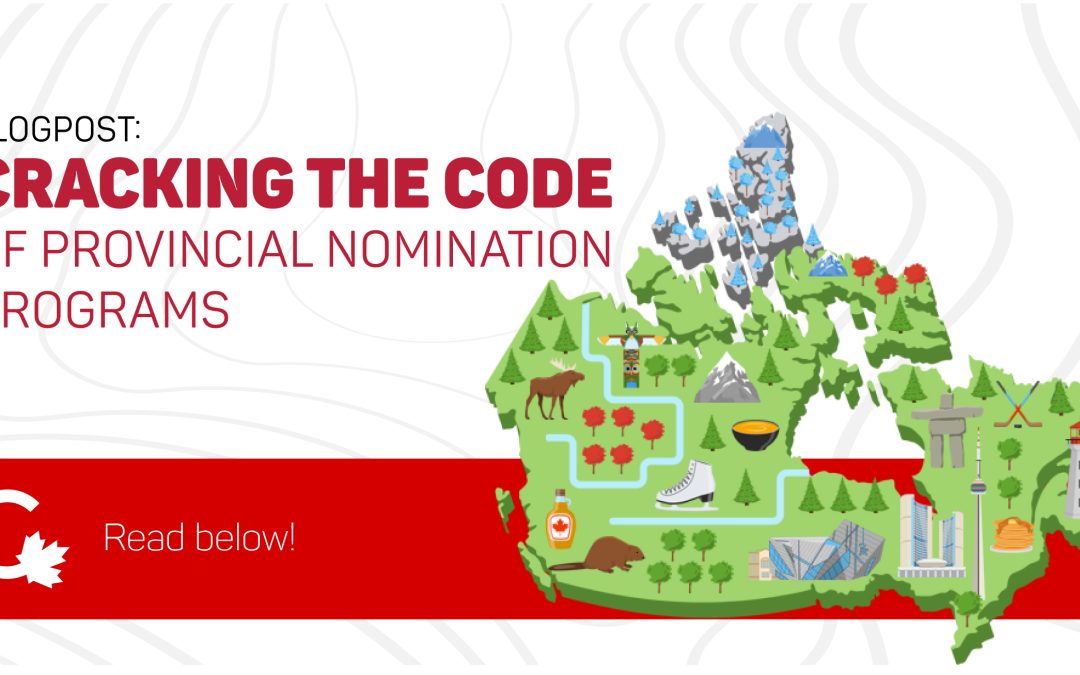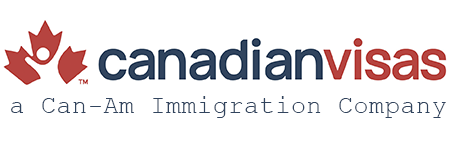
Jul 19, 2023 | Becoming a Sponsor, Blog, Citizenship, Express Entry, Family Immigration, Help with Inadmissibility, How To, Immigrate to Canada, Immigration, In the News, Spousal Sponsorship, Work Permits, Working In Canada
Family reunification is a fundamental cornerstone of Canada’s immigration strategy, and to further this objective, Immigration Refugees and Citizenship Canada (IRCC) has implemented a new measure: Open Work Permits are now available for outland applications. The aim is to facilitate the reunification of more families within the country. Under this new measure, spouses, partners, and dependents of permanent residents, Canadian citizens, temporary workers, and students who are already in Canada may now be eligible for an Open Work Permit.
Previously, open work permits were restricted to applicants under inland sponsorship or those already residing in Canada on a Temporary Residence Visa (TRV). However, the recent change extends eligibility for open work permits to those applying from outside of Canada (outland sponsorship).
To expedite the process, IRCC aims to process all spousal sponsorship applications within 12 months.
Eligibility for open work permits
Family members include spouses, common-law partners, conjugal partners, and dependent children over 18 years old.
Eligibility criteria for open work permits, as stated by IRCC, encompass the following conditions:
- The family member must have a valid temporary resident status, maintain their status, or be eligible for restoration of status.
- The sponsored party must have the same residential address as their sponsor in Canada when applying for the open work permit.
IRCC public policy allows officers to grant an open work permit to foreign nationals who meet any of the following conditions:
- They are the principal applicant with a submitted permanent residence application under the spouse or common-law partner in Canada, or as a spouse, common-law or conjugal partner under the family class, which has been accepted for processing by IRCC.
- They have submitted a work permit application for a maximum duration of two years.
- They are the subject of a sponsorship application submitted by their Canadian citizen or permanent resident spouse, common-law or conjugal partner.
- They have the same residential address as their sponsor in Canada at the time of the application and possess valid temporary resident status in Canada or have applied for restoration of status.
Alternatively, open work permits may also be granted to dependent children who meet the following conditions:
- They have been included as an accompanying family member in the application for permanent residence.
- They have submitted a work permit application for a maximum duration of two years.
- They have the same residential address as the principal applicant and their sponsor in Canada at the time of the application and possess valid temporary resident status in Canada or have applied for restoration of status.
Family reunification is a top priority in Canada.
This initiative was announced on May 26 by Immigration Minister Sean Fraser. Along with open work permits for outland spousal sponsorship, other family reunification measures were introduced, such as:
- Faster processing times for spousal applicants’ temporary resident visas (TRVs)
- New, dedicated processing tools for spousal TRV applicants.
- Open work permit extension availability for open work permit holders expiring between August 1st and the end of 2023.
Minister Fraser expressed IRCC’s dedication to reuniting families expeditiously and enabling them to work and support themselves more swiftly upon arrival. This approach not only helps newcomers fulfill their potential but also strengthens Canada’s economy and social fabric.

Apr 17, 2023 | Blog, Complete Representation, Express Entry, Family Immigration, How To, Immigrate to Canada, Immigration, New Immigration Programs, Permanent Residency, Preparation of Application, Provincial Nominee Program, Skilled Workers, Temporary Foreign Workers
Understanding Provincial Nomination Programs in Canada: Eligibility Requirements and Differences
Canada is known for its warm hospitality and has a range of opportunities for foreign nationals to call it their permanent home. One such opportunity is through the Provincial Nominee Program (PNP), which allows Canadian provinces and territories to nominate foreign workers, entrepreneurs, and graduates for permanent residency. Each province and territory has its own unique PNP, with distinct eligibility requirements and selection criteria. To better understand the different eligibility requirements for these programs and how they differ from one another, read on.
What is a Provincial Nomination Program?
A Provincial Nomination Program (PNP) is a program designed to allow Canadian provinces and territories to select and nominate foreign nationals who are interested in settling in their region. PNPs were created to help address regional labor market shortages and attract talented individuals to Canada’s different provinces and territories.
Eligibility Requirements for Provincial Nomination Programs
The eligibility requirements for PNPs differ from province to province, but in general, they require candidates to have the following:
- Education and Language Proficiency: Most PNPs require candidates to have completed at least a high school education and to have demonstrated proficiency in either English or French, Canada’s official languages.
- Work Experience: PNPs require candidates to have a certain amount of work experience in their occupation, which varies by province and occupation.
- Age: PNPs typically target younger individuals who are likely to contribute to the labor market and the community for many years. The minimum age for PNPs is usually 18 years old, but some provinces require candidates to be between 21 and 45 years old.
- Job Offer: Most PNPs require candidates to have a job offer from an employer in the province. The job offer must be in an occupation that is in demand in the province.
- Adaptability: PNPs consider factors such as previous education or work experience in the province, family or friends in the province, and language skills in addition to the minimum eligibility requirements.
How do PNPs differ from each other?
PNPs differ from each other in terms of the eligibility requirements, the selection process, and the categories of candidates they target. Here are some of the main differences:
Eligibility Requirements:
Each province has its own set of eligibility requirements for PNPs. For example, the British Columbia PNP requires candidates to have a job offer in a skilled occupation, while the Saskatchewan PNP allows candidates without a job offer to apply for the program.
Selection Process:
PNPs use a point-based system to evaluate candidates based on factors such as education, work experience, age, language proficiency, and adaptability. However, the point system and selection criteria vary by province and can change over time.
Categories of Candidates:
Each PNP has its own categories of candidates, such as skilled workers, international graduates, entrepreneurs, or semi-skilled workers. Some PNPs prioritize certain categories over others, depending on the needs of the province.
Conclusion
In conclusion, Provincial Nomination Programs (PNPs) are an excellent way for foreign nationals to immigrate and settle in Canada. However, the eligibility requirements for PNPs differ by province, and candidates must carefully evaluate their eligibility before applying. It is essential to consult with an immigration consultant or lawyer to determine which PNP is the best fit for your qualifications and career aspirations. By understanding the different eligibility requirements and selection criteria for PNPs, candidates can increase their chances of being nominated and achieving their dream of living and working in Canada.
Aug 5, 2013 | How To
How to get Work Holiday Visa for Canada
To get a work holiday visa for Canada you must be at least 18 years old and no older than 31 at the time you submit your application. To get a work holiday visa for Canada you must be a Citizen or permanent resident of at least one of the following countries; Australia, Austria, Belgium, Chile, Costa Rica, Croatia, Czech Republic, Denmark, Estonia, France, Germany, Greece, Hong Kong, Ireland, Italy, Japan, Korea Rep, Latvia, Lithuania, Mexico, Netherlands, New Zealand, Norway, Poland, Slovakia, Slovenia, Spain, Sweden, Switzerland, Taiwan, Ukraine, and United Kingdom. Getting a Work Holiday Visa for Canada requires that you apply through the International Experience program and submit your application to the visa office responsible for your country of nationality.
You may learn more about the working holiday visa for Canada at http://www.international.gc.ca/experience/working_holiday-travail_vacance.aspx
To speak to an immigration consultant from our firm or to learn more about how to get a work holiday visa for Canada, contact our offices today!
Aug 5, 2013 | How To
How to get a Visitor Visa for Canada
To get a Visitor Visa for Canada you would have to satisfy an immigration visa officer that your intention is to come to Canada for a short visit, no longer than 6 (six) months.
To get a visitor visa for Canada you would have to submit an application for a visitor visa for Canada to the visa office responsible for your country of nationality or permanent residence. This requires that you complete the visitor visa application form and submit all of the required evidence to prove you will leave at the end of your stay. The Canadian immigration visa officer will want to know the purpose of your visit to Canada, who you will be staying with, and for how long. If you are applying for a visitor visa for Canada for business purposes, you will have to apply for the Business Visitor Visa instead.
To get a Visitor Visa for Canada you will need to submit evidence proving strong ties to your home country. Having strong ties to your country will show that you have reasons to return to your country, and this should satisfy the officer of your intention to leave Canada at the end of your stay. Without strong ties to your country getting a visitor visa for Canada is going to be difficult. Getting a visitor visa for Canada is not easily obtained and your application must be prepared carefully and completely to avoid a refusal.
For more information or to speak to an immigration consultant on how to get a visitor visa for Canada, contact our offices by calling or sending us an email.
Aug 5, 2013 | How To
How to get a Study Visa for Canada
Getting a study visa for Canada is fairly difficult. While the Canadian immigration website provides you with information on how you can apply for a Canada study visa, they do not express how difficult the immigration officers are when evaluating your application for a Study Visa for Canada. While Canada encourages students to apply for a Canada Study Visa, Canada immigration officers will only issue a Canada Study Visa when the student can satisfy the immigration officer that he or she has been admitted to a Canadian school, is serious and can be trusted to follow the rules, and has enough financial resources to afford paying for tuition, school supplies, health insurance and living expenses.
Because most schools teach in the English or French languages, you must show sufficient skill in at least one of those languages. In some cases you may come to Canada to learn those language skills before enrolling in a full time study program. To get a Study Visa for Canada your first step is to enroll and get an acceptance letter from a Canadian school. Once you have the acceptance letter you will need to write a study plan to explain the reasons why you would like to study in Canada. You should also explain what you will do with the degree or diploma you will earn at the end of your studies in Canada.
To get a study visa for Canada you will have to submit a strong application for a study visa. Your application must include all of the study visa application forms along with your supporting documents that show you have enough money to pay for the tuition, school supplies, health insurance as well as all living expenses. To get a study visa for Canada you would have to submit your complete application to the visa office that is responsible for your country of residence and or nationality.
For further information on how to get a study visa for Canada, or to retain our services to prepare and represent you on your application for a study visa for Canada, feel free to contact our offices.
Aug 5, 2013 | How To
How to get a Work Visa for Canada
The first step to get a Work Visa for Canada requires that you have a job offer from a Canadian employer.
Your employer must obtain formal authorization from the Canadian government to hire you as a temporary foreign worker. After your employer obtains this approval, you would be eligible to submit an application for a work visa for Canada. To get a work visa for Canada you would have to prove that you are qualified to perform the job duties that you have been hired to perform. When you submit your application for a work visa for Canada it is imperative that you provide sufficient documents to prove your qualifications and previous work experience. Since English is the official language in Canada you will have to satisfy the immigration officer that you can speak and understand English. When you apply for a work visa to Canada you may be called for an interview in front of a Canada immigration officer. The Canada immigration officer will evaluate your English ability. In order to better satisfy the English requirement we recommend that you take the IELTS language examination. You may wonder how many people get a work visa for Canada, but this mainly depends on their application. You must meet the main requirements, and submit a complete and thorough application.
To learn more on how you can Get a Work Visa for Canada, feel free to email or contact us directly.



 Useful Resources for Canada
Useful Resources for Canada
 Useful Resources for U.S.
Useful Resources for U.S.
 Our Local Immigration Services
Our Local Immigration Services